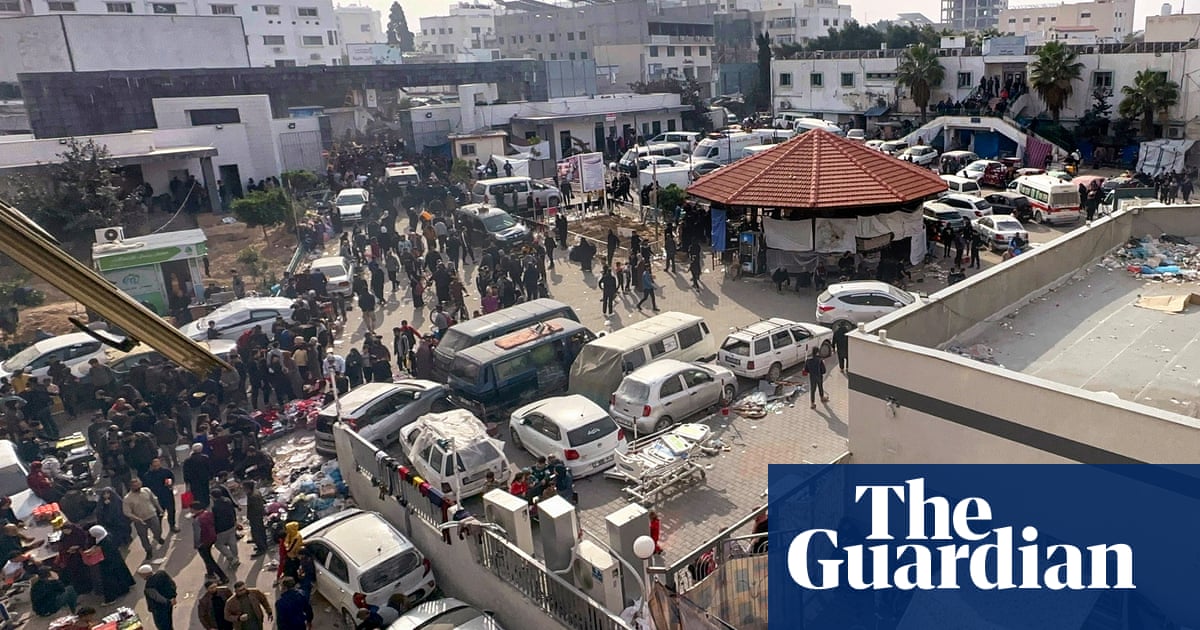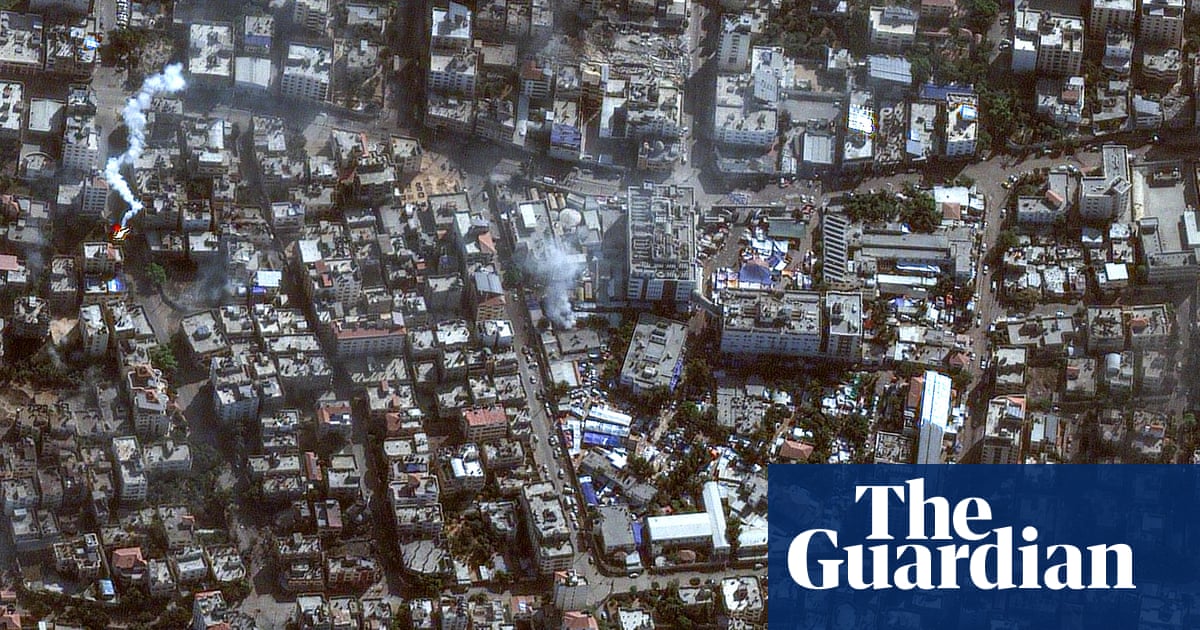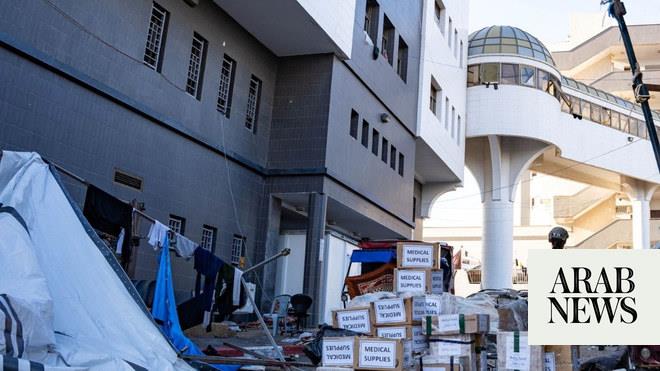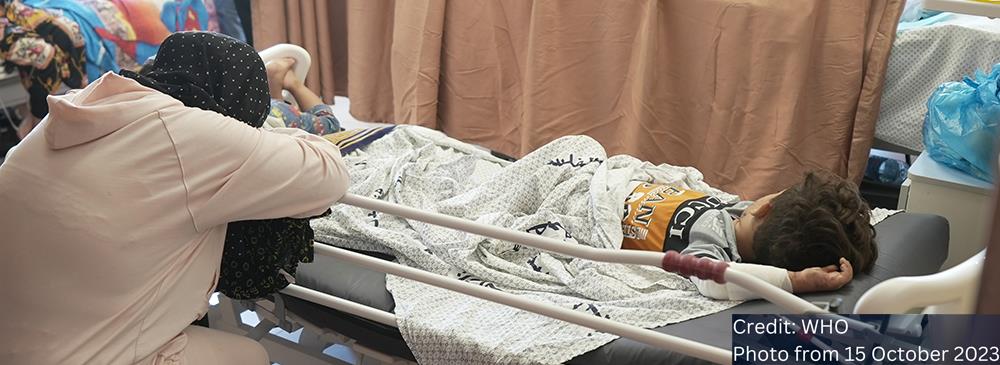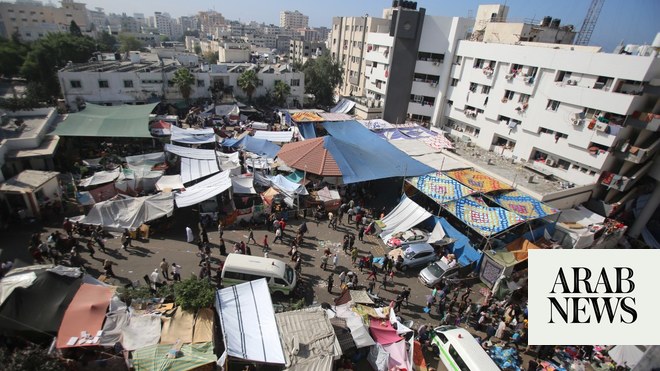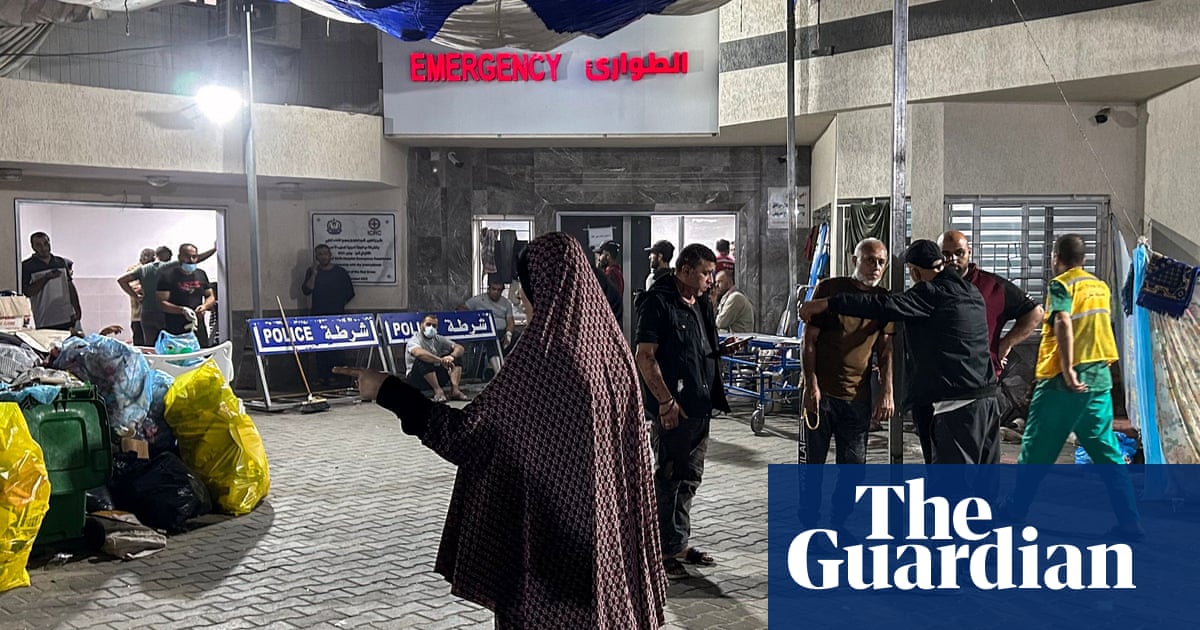
Establishing control over al-Shifa hospital is a key Israeli objective for military and political reasons. The sprawling complex dominates the centre of Gaza City, where Hamas has much of its administrative infrastructure, and is close to the main north-south road that runs along the coast.
Destroying the ability of Hamas to govern Gaza is one of the stated aims of the Israeli offensive.
“In this war we have to dismantle the elements of Hamas that will prevent Hamas from becoming a military threat again or a government again,” said Prof Kobi Michael of the Institute of National Security Studies in Tel Aviv.
“We cannot deal with the ideology by bombing or shooting. This requires different means … It is not connected to the immediate objectives of this war. Right now we have to deal with the military and political entity.”
However, as crucial as Israel feels the operation is, it is also fraught with diplomatic risk. The United States had no wish to see “innocent civilians” caught up in fighting in Gaza’s healthcare facilities, a senior US official said on Sunday.
“The United States does not want to see firefights in hospitals where innocent people, patients receiving medical care, are caught in the crossfire and we’ve had active consultations with the Israeli Defence Forces on this,” White House national security adviser Jake Sullivan told CBS News in an interview.
Israeli officials have said they do not target medical facilities and repeatedly claimed the headquarters of Hamas is sited in bunkers under al-Shifa and that the militant Islamist organisation is using patients, medical staff and thousands displaced by the fighting as “human shields.” Hamas rejects the claims.
Writing in the mass-market newspaper Yedioth Ahronoth, columnist Avi Issacharoff said that, despite the mounting Israeli casualties in Gaza, something that began as the biggest military failure in Israel’s history had become a relatively successful military campaign. But, he added: “One cannot ignore the fact that before our very eyes this is turning into one of the biggest diplomatic disasters we have ever known.”
Israeli military planners are well aware that international pressure has halted Israeli offensives or counterattacks in a series of previous wars. In 1967 and the Yom Kippur war of 1973, the Israel Defence Forces rushed to make gains in the final hours before ceasefires were imposed.
In 1982, the US president, Ronald Reagan, told the prime minister, Menachem Begin, to halt the intensive shelling and bombing of Beirut, leading Israeli hawks to claim that international pressure had deprived them of a conclusive victory against Yasser Arafat’s Palestinian Liberation Organization.
There are few signs that the current Israeli government is about to make any such concession to the entreaties of Israel’s allies. Munir al-Boursh, an undersecretary at the Hamas-run health ministry, alleged on Sunday that Israeli snipers had deployed around Shifa, firing at any movement inside the compound. He said airstrikes had destroyed several homes next to the hospital, killing three people, including a doctor.
In typically bullish style, Israel’s prime minister, Benjamin Netanyahu, said his country had offered fuel to Gaza’s al-Shifa hospital, which has suspended operations during the fierce fighting with Hamas but that the militant group had refused to receive it. The Israeli military has said there is a safe corridor for civilians to evacuate from Shifa to southern Gaza, but people sheltering in the hospital said they were afraid to go outside.
The Hamas-run health ministry in Gaza said there are still 1,500 patients in the hospital, along with a similar number of medical personnel. Thousands have fled Shifa and other hospitals, but physicians said yesterday it was impossible for everyone to get out. There were, they said, bodies lying in the surrounding streets.
Lt Col Richard Hecht, an IDF spokesperson, explained last week that the Israeli military did not target hospitals. He then added: “But if we see a Hamas terrorist, we will kill him.”




